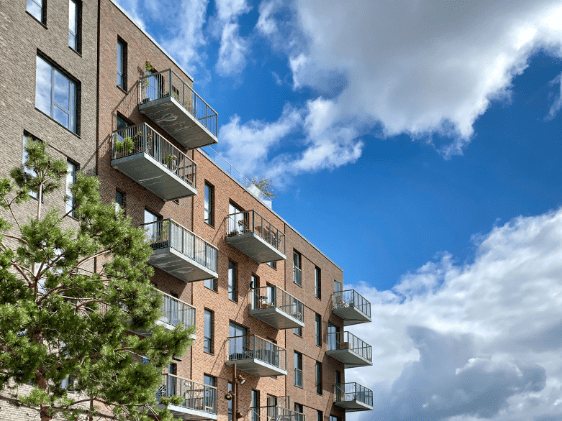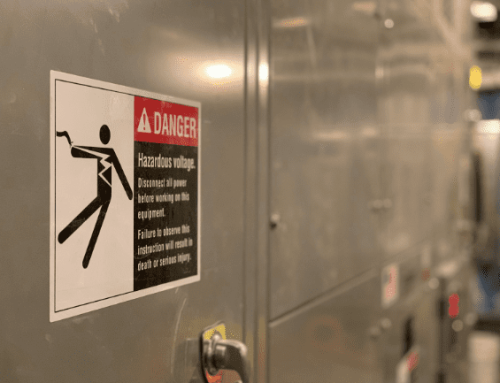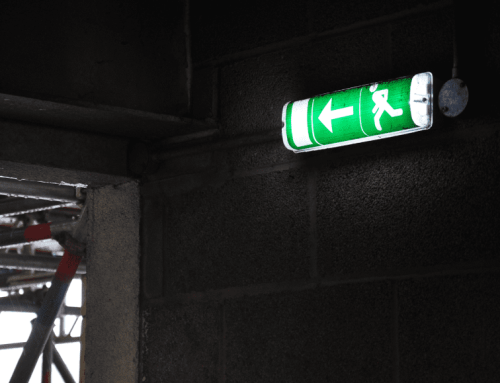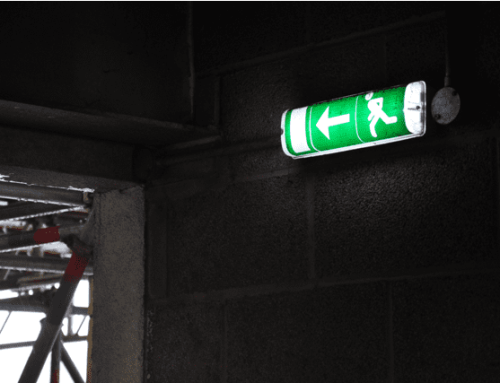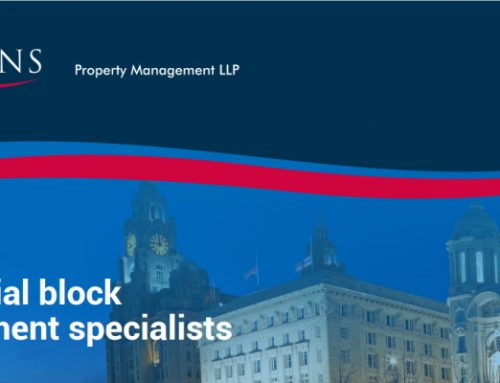Ensuring the health and safety of the block and its residents is one of the main duties of a residential block property management company.
Everyone is aware of the significance of health and safety in all facets of life. Nobody likes to get sick or hurt, especially if it might have been avoided!
That being said, danger cannot be completely eliminated because it is a constant in life. As a matter of fact, occasionally taking a chance can be beneficial to us. However, it is legally and morally required to manage fire, health, and safety hazards to a manageable level in order to prevent illness, injury, and even death when it comes to block management.
Accurate risk management has definite financial benefits as well; long-term cost reductions are almost certain when mistakes are avoided.
So what are some of the block management health and safety regulations? Let’s take a look.
What is Health and Safety in block management?
As you’d expect, there are several areas of legislation that need to be adhered to. A residential block management company will ensure protection in a number of key areas by arranging visits to cover lifts, gates, asbestos and much more.
In 2021, accidents involving residential places formed 73% of the total accidents due to the collapse of structures.
A proper and sufficient health and safety risk assessment should be conducted in the common spaces of a block in order to control general health and safety concerns.
This will assist in identifying potential dangers, identifying those who are at risk, and providing information on any control measures required to eliminate or lessen the risks. The Management of Health and Safety at Work Regulations 1999 mandate that requirements for health and safety risk assessments, which, like sufficient fire risk assessments, must be managed and routinely reviewed.
Perhaps the most important of health and safety services, block managers will inspect the building to make sure all fire safety regulations are being adhered to, as well as organising for electrical inspections to be carried out every five years.
7 Health and Safety measures for a block management companies
What dangers exist in block management, then? As you would have predicted, fire typically ranks highest on the list because it has the ability to seriously damage buildings and put lives in danger. Additional potential dangers may include asbestos management, legionella, and general health and safety.
Fire Safety Regulations
According to the 2005 Regulatory Reform Fire Safety Order (RRO), block managers are required to conduct, implement, and maintain fire risk assessments on all common areas inside a residential block. People who violate RRO may be subject to penalties and/or legal action.
Every time there is a change to the block, the fire risk assessment needs to be updated often to include the following crucial areas:
- The safety of the block’s inhabitants, staff, and guests
- On-site flammable materials and possible sources of ignition
- Smoke alarms
- Sufficient firefighting apparatus available
- Maintenance of structures that resist fire, like fire doors
- Fire exits, escape routes, and protocols
Electrical Safety
It is the responsibility of the block manager to guarantee that their blocks adhere to the 1989 Electricity at Work Regulations legislation. This implies that they are in charge of fixing any frayed or hazardous wire, doing routine electric testing in common spaces, and fixing any electrical equipment used by the community, such as lifts.
When placed in communal areas, electrical equipment needs to be identified with the appropriate CE symbol and have instruction manuals readily available for anyone who wants to use them.
Gas Safety
Block management companies must make sure that gas fittings and appliances are installed and maintained correctly in accordance with the 1998 Gas Safety Regulations of Installation and Use Act.
There are three main parts to this:
- Upkeep of all appliances, pipes, and flues
- Gas safety checks: All appliances, flues and plumbing systems need to have annual gas safety inspections performed.
- Record keeping: Annual gas safety check reports must be given to renters and landlords. Block managers have two years to maintain these documents.
COSHH
The risks associated with exposure to hazardous materials in the communal spaces of the block are identified by Control of Substances Hazardous to Health (COSHH) assessments. These might be as widespread as paint, cleaning supplies, hazardous materials, and an abundance of dust.
The residential block manager is responsible for performing a COSHH evaluation, deciding whether to provide instructions to anyone handling the materials, providing personal protective equipment (PPE) as needed, and posting signs as needed. To guarantee the safety of people on site, external contractors should also provide COSHH assessments and risk assessments.
Asbestos
Block managers are responsible for determining whether there is a risk of asbestos in the common spaces of the block. To find out if there is asbestos in the structure, an asbestos survey can be necessary. If asbestos is discovered, the block manager is required to manage and control the problem by creating an asbestos policy and maintaining a record.
Legionella
Legionella is a bacterium that is frequently found in water systems and can cause inflammation in the lungs. Residential block managers have the obligation of managing the potential dangers of Legionella in communal areas’ taps and water pipelines, as well as in individual apartments when the water supply is not obtained directly from the water source.
Risk Assessments
Block management companies are required to carry out health and safety risk assessments in the complex’s common areas in order to adhere to the Management of Health and Safety at Work Regulations 1999. It is advised that these be completed at least once a year.
Common spaces consist of:
- Stairwells, hallways, and paths
- Courtyards and communal gardens
- Parking facilities
- Elevators
- Roof access
- Any spaces used by employees, including staff rooms or cupboards for storage
In addition to safeguarding the health and safety of occupants and on-site employees, this lowers the possibility that accidents or injuries within the building will result in legal action.
Looking for a reputable block management company?
We hope you have found these health and safety guidelines helpful whether you’re a landlord, member of an RMC or leaseholder.
Residential block managing agent Scanlans, have a wealth of experience and knowledge when it comes to managing residential blocks safely and effectively.
Scanlans provides fire risk assessments and general health and safety inspections as a part of our property management services. Our team can help you ensure that your premises are secure and in accordance with all relevant legislation.
Get in touch today to find out more.
Block management health and safety FAQs
What is block management?
Block management is the upkeep and administration of residential buildings that house several units, including multifamily housing, apartment complexes, and other shared properties.
What are block management companies responsible for?
In regards to health and safety, block management companies carry out risk assessments, including fire and gas safety, to ensure there are no risks which could cause fatal or serious injuries to residents, guests and staff.
Who can carry out a fire risk assessment HSE?
In England and Wales, the Regulatory Reform (Fire Safety) Order 2005 defines a “responsible person.” Under the Fire (Scotland) Act 2005 (Scotland), a “duty holder” is described. Typically, an employer, owner, or occupier is a responsible party or duty holder.

